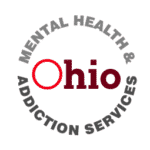If you’ve ever flown, you may recall the instructions you are meant to follow if there is a change in cabin pressure. When the oxygen masks drop you are supposed to secure yours first then assist your child. Why? Because you’re not able to help your child if you are gasping for breath yourself.
The point is, mothers must care for their minds and bodies first in order to care for everyone else.
If you’re grappling with PPD, the same is true. Perhaps you’re feeling so down on yourself that you don’t feel deserving of self-care. YOU MUST DO IT ANYWAY.
Practicing good self-care alone is typically not enough to resolve PPD, but it is a necessary part of every recovery plan. For moms who’ve recovered from PPD, self-care is an essential part of guarding against relapse.
Get in the habit of putting your own needs on the to-do list. This certainly doesn’t mean you may disregard your baby’s vital needs for food, warmth, cleanliness or comfort. But babies are naturally skilled at making sure that their needs are known. Honoring your own needs does not mean you will become distracted and forget theirs. Consider what you want to teach your children about motherhood as they grow. Do you want them to see that a mother is a woman who cares for everyone, but depletes herself in the process? Would you want your daughters to mother this way?
The suggestions below aren’t listed to make you feel guilty or overwhelmed. We’ve listed them here because many of us have learned the hard way that it helps to follow them. Do what you can each day and know that each thing you do for yourself, no matter how small, is making a difference.
Sleep is a necessity.
Your body and brain need several hours of nighttime sleep to function properly. It’s incredibly challenging to find a chunk of time to catch up on your sleep, so you may need to get creative. Can you split or alternate nighttime feedings with your partner? Can a friend, family member or neighbor come over so you can squeeze in a couple of 30-minute naps during the day? Or, do you already have opportunities and still can’t go to sleep? Problems with sleep are very common with PPD. If this is true for you, consult your doctor without delay.
Who’s there for you?
You need assistance with the enormous job of caring for an infant, your home and yourself at the same time. Contrary to what many of us think, asking for help is not a sign of weakness. It really does take a village to raise a child! Who can you think of to help you with cooking, running errands or babysitting? Go ahead and ask them. Would you think lesser of someone for asking you to help after the arrival of a new baby? Chances are, you’ve already received offers of help with day-to-day tasks. Unless it’s a person who will make your life crazier by being around, accept the offer.
You also need support from others who can listen and understand. Try to get together with other parents who share similar concerns and needs. Just seeing other moms struggling with the same problems can be validating. It’s not that misery loves company, but rather that you may no longer feel as if something is wrong with you when you hear another mom voicing the same feelings, worries, complaints and concerns.
Express yourself
If you can allow yourself to voice those negative feelings somewhere safe, you may also find a space to experience the positive aspects of having a new baby. Attend a support group (link to 1.3.3), write your feelings in a journal or express them to a partner, family member, trusted friend or qualified mental health professional (referrals available through the POEM program).
Take breaks
In the paid working world, breaks are required. They should be in your day as well. You need a few minutes to put up your feet, read the paper or just daydream. You also need an hour or two away to do something fun. Mothers need time alone and couples need breaks from being “the parents.”
Adjust your expectations
Did you dream of everything you’d catch up on during maternity leave?
Or, dream of many relaxed, joyful bonding moments with your newborn?
Know that’s just what they are – dreams. The task of caring for a new baby is incredibly demanding and time-consuming all on its own. In reality, if you can jump in the shower each day, you’re doing quite well. If you’re going to take those breaks we mentioned before, you’ll need to let go of the fantasy of a perfectly clean and orderly house. Save your energy for truly important things. Think about making a “did-do” list every day or two instead of a “to-do” list. And don’t forget to include every detail. You’ll be amazed at how much you do without feeling like you’re getting anything accomplished!
Hold off on big changes
There are, of course, unforeseen circumstances. But, try your best to avoid changing careers, moving or other major life changes. These often add even more stress to your life.
Eating
Appetite disturbances are quite common with PPD. You may feel like eating nothing, eating everything or you may be too nauseous to even think about food. But, your brain and body need you to eat. If you feel overwhelmed about meal preparations, just have snacks. The important thing is to eat, not to cook.
No Timelines
How long will it be until you start to feel better? No one can tell you, for sure. Every woman’s experience with PPD is a little different. It’s never going to feel fast enough, but know that each tiny thing you do for yourself makes a difference. Even as you begin to feel better, you’ll almost certainly have rough days. You’ll likely feel that you’re back to square one, but it’s really just a normal part of the recovery process.
Stay in the here and now.
When you start to feel overwhelmed, try to stop and ask yourself:
What do I absolutely need to deal with/do right now?
Let go of the restWhat can I control right now?
Let go of the rest
Contact POEM
If you are looking for resources in your area or just need to talk to another mom or birthing person who understands, our mom-to-mom support line is available Monday-Friday during regular business hours.







